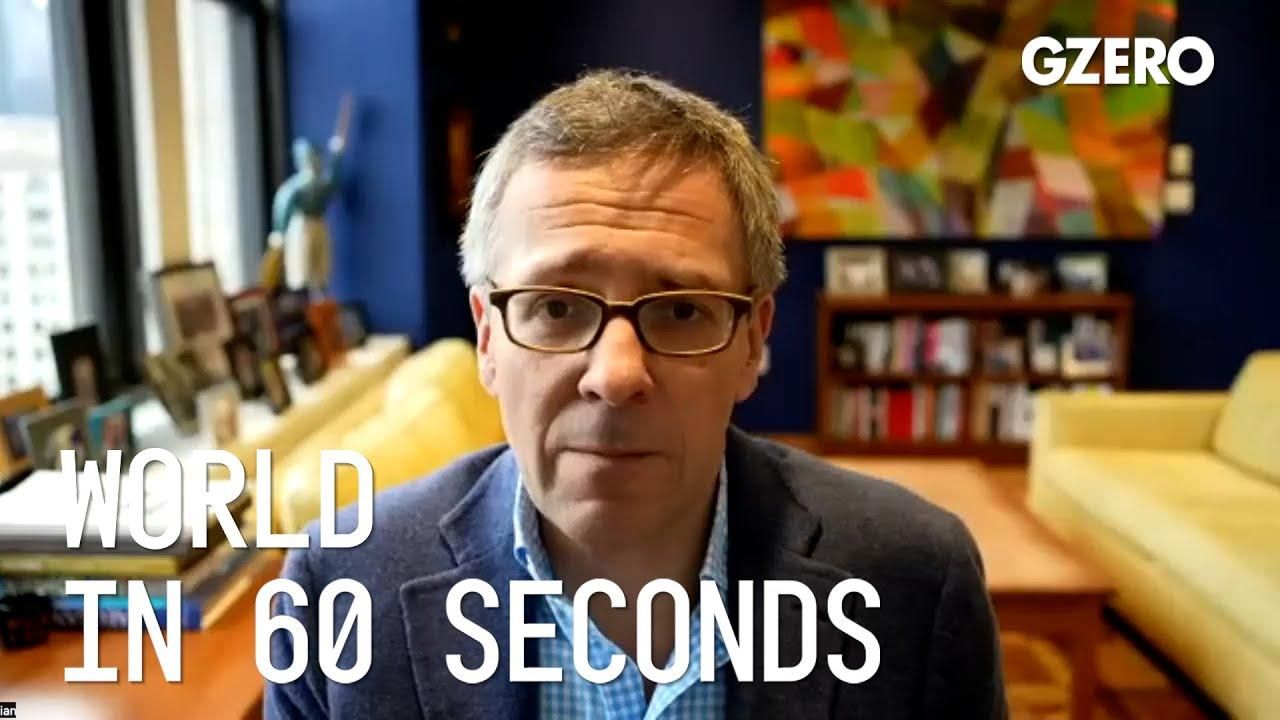Ian Bremmer shares his insights on global politics this week on World In :60.
How badly has the Russian economy been affected from the war in Ukraine?
Well, I mean, badly in the sense that half of Russian military capabilities, uh, in terms of things like ammunition and ballistic missiles and, you know, even standing army that's capable has been chewed up by a year of war. So Russia is gonna have to now rebuild that, and that does mean that their exports to other countries, they were the second largest defense export in the world, is gonna seriously take a hit. But near-term, less than 4% GDP contraction in 2022, which means that Russia's position of having all of these critical resources that everyone else in the world still really needs gives them a lot of resilience in terms of their economy. They're not gonna fall apart any time soon.
Why is a US four-star general warning about a potential war with China in 2025?
Probably because that particular military official does not have direct accountability over China. This was a classified report that people have been talking about, and as a consequence it made it to the public. And if it bleeds it leads, especially if it's about war with China, because there are so many people that wanna talk about headlines that we could be in war with China. And so, you find thousands of people that say, "No, we don't think it's gonna happen." One that says, "I think it will by 2025." That's what everybody asks about. Deeply misleading in terms of your following and consumption of the media. And if you wanna not panic, GZERO is a better place to go than that random military official.
Given widespread opposition, how does Macron expect to pass pension reform in France?
Very noisily. He's only trying to add a couple of years to the age. Previous presidents have failed in their efforts. He is taking on massive popular opposition, labor forces that are very well organized, unlike in the US, unlike in a lot of other European states, but ultimately, they need this. The demographic's life expectancy continues to increase in France, unlike the United States in recent years, and as a consequence that means people have to work longer before they get fully paid for pensions. And the French government is trying to make good on that as a fiscal reform. On balance, very likely that Macron gets it done with support from the center and center right. He should have enough in parliament to get it past. If not, he's in serious trouble, basically becomes a lame-duck presidency with a few years left. But we suspect he's likely to make that happen.
That's it for me. I'll talk to y'all real soon.
More For You
U.S. President Donald Trump holds a bilateral meeting with NATO Secretary General Mark Rutte at the World Economic Forum (WEF) in Davos, Switzerland, January 21, 2026.
After saying numerous times that he would only accept a deal that puts Greenland under US control, President Donald Trump emerged from his meeting with NATO Secretary General Mark Rutte singing a different tune.
Most Popular
AI adoption is accelerating worldwide, but “diffusion” isn’t just about who has the best models. It’s about who has the basics: affordable power, reliable connectivity, and the skills to actually use AI. In a new GZERO Media Global Stage livestream from the 2026 World Economic Forum in Davos, Switzerland, CNN’s Richard Quest moderates a clear-eyed discussion on what it will take to broaden AI access, and what happens if the gap widens.
Now that we are all on same page. #PUPPETREGIME
At Davos, Ian Bremmer says the most important speech at this year’s World Economic Forum wasn’t President Trump’s, it was Canada’s Prime Minister Mark Carney declaring “a rupture” in the US-led world order.
